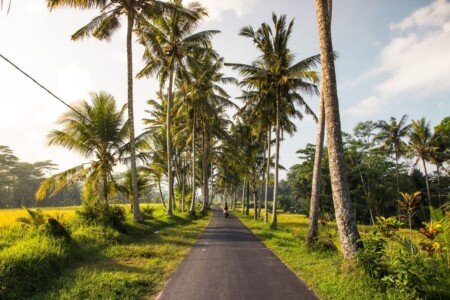Navigating Bali can be a delightful adventure, but understanding how to read and use maps effectively is essential for a smooth and safe journey. Whether you’re exploring bustling markets, serene temples, or hidden beaches, mastering map reading will enhance your experience on this enchanting island.
🗺️ Tip 1: Choose the Right Map for Your Needs
Selecting the appropriate map is the first step in ensuring a successful trip. Bali offers various types of maps, each serving different purposes:
- Tourist Maps: These highlight major attractions, restaurants, and accommodations, ideal for first-time visitors.
- Topographic Maps: Useful for hikers and trekkers, these maps detail elevation changes, trails, and natural features.
- Cultural Maps: Focus on temples, traditional villages, and cultural sites, perfect for those interested in Balinese heritage.
- Interactive Digital Maps: Apps like Google Maps and Maps.me offer real-time navigation, offline capabilities, and user-generated content.
Consider your itinerary and interests to choose the most suitable map.
🧭 Tip 2: Understand Map Symbols and Legends
Familiarizing yourself with the symbols and legends used on maps is crucial for effective navigation. Common symbols include:
- Red Circles: Major attractions or landmarks.
- Blue Squares: Hotels and accommodations.
- Green Lines: Walking or hiking paths.
- Yellow Dots: Restaurants or eateries.
Understanding these symbols will help you quickly identify points of interest and plan your routes accordingly.
📍 Tip 3: Plan Your Routes in Advance
Before setting out, study your map to plan the day’s itinerary. Group attractions that are close to each other to minimize travel time. For instance, if you’re visiting Ubud, consider combining trips to the Monkey Forest, Ubud Palace, and the Art Market. This approach allows for a more relaxed and enjoyable experience.
🧳 Tip 4: Keep Your Map Accessible
Having your map readily available is essential for spontaneous detours and quick reference. Use map cases, waterproof pouches, or digital devices to store your maps. For digital maps, ensure your device is charged and consider carrying a portable charger.
🗣️ Tip 5: Ask Locals for Directions
While maps are helpful, locals can provide invaluable insights. Don’t hesitate to ask for directions or recommendations. Balinese people are known for their hospitality and are often willing to assist travelers. Learning a few basic phrases in Bahasa Indonesia or Balinese can also enhance communication.
📱 Tip 6: Utilize Technology for Enhanced Navigation
In addition to traditional maps, digital tools can improve your navigation experience:
- Google Maps: Offers real-time traffic updates, route planning, and offline maps.
- Maps.me: Provides detailed offline maps with hiking trails and points of interest.
- TripAdvisor: Features user reviews, photos, and ratings for attractions and restaurants.
These apps can help you navigate Bali’s diverse landscapes and discover hidden gems.
🛡️ Tip 7: Be Mindful of Local Customs and Traditions
When using maps to locate cultural sites, it’s important to respect local customs:
- Dress Modestly: Wear appropriate attire when visiting temples and sacred sites.
- Respect Offerings: Avoid stepping on or disturbing canang sari (daily offerings) placed along paths.
- Photography Etiquette: Always ask for permission before taking photos of people or religious ceremonies.
Being aware of these practices ensures a respectful and enriching experience.
🌐 Tip 8: Stay Updated with Current Information
Maps can become outdated, especially in rapidly developing areas. Regularly check for updates on digital platforms or consult with local tourism offices for the latest information on road conditions, new attractions, or closures. This proactive approach helps avoid unexpected challenges.
🏞️ Exploring Bali’s Diverse Regions
Bali’s unique regions offer distinct experiences:
- Ubud: Known for its art scene, rice terraces, and spiritual sites.
- Seminyak: Offers upscale shopping, dining, and beaches.
- Canggu: Popular among surfers and digital nomads.
- Nusa Dua: Features luxury resorts and pristine beaches.
Each area has its own charm, and understanding the layout through maps can help tailor your itinerary to your interests.
🧭 Final Thoughts
Mastering map reading in Bali enhances your travel experience, allowing you to explore the island’s rich culture, stunning landscapes, and vibrant communities with confidence. By choosing the right map, understanding symbols, planning routes, and respecting local customs, you’ll navigate Bali like a seasoned traveler. Embrace the journey, and let Bali’s beauty unfold before you.










Join The Discussion